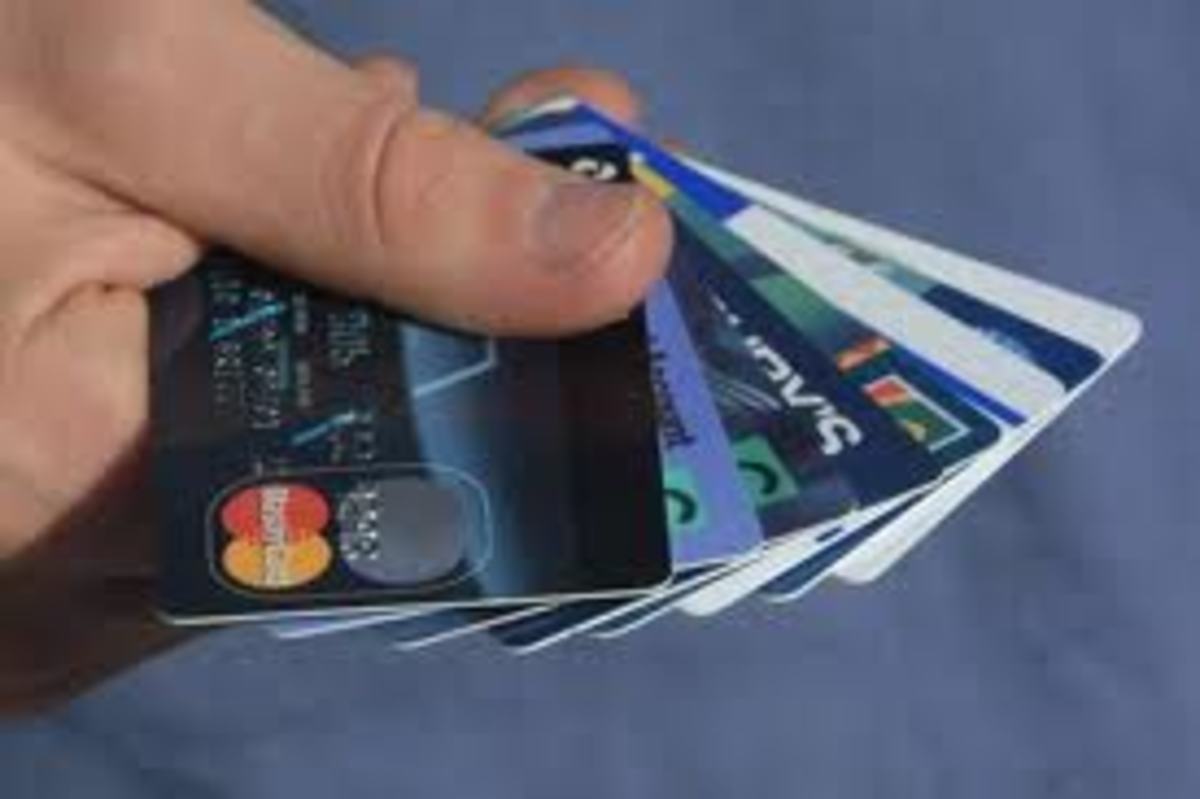What Is Credit Card Churning, Is It Worth Doing?

If you love reward programs you may have heard the term “credit card churning”. If you’re not sure what it is, you’re not alone. The following will explain what credit card churning is and benefits if done successfully.
First, you need to be responsible, good with managing finances and debt. Otherwise, you not only risk getting in debt, but damaging your credit score as you sign up for multiple credit cards.
However, anyone who travels knows just how fast expenses add up. Just combining hotel stay and flights a short vacation can easily reach $1,000+. When done correctly these costs can be offset by cash back rewards, sign on bonus, or reward points program.
Credit card churning is not always suitable for everyone. The following information will help you make a decision based on your situation.
What Is Credit Card Churning?
In short, it is where an individual applies for multiple credit cards over time to collect the sign-up bonus. There are so many credit cards that companies offer incentives to choose them over the other guys. This allows new cardholders opportunities to earn large bonuses.
Credit card churning is a term that describes opening, collecting and closing credit cards repeatedly. This allows cardholders to maximize credit card rewards, instead of opening a single credit card, getting the sign on bonus once then continuing to use the card. In addition, you can combine loyalty programs, cash back, reward points and sign on bonuses.
Are You Currently Churning Credit Cards?
What Is a Sign On Bonus?
A sign on bonus can vary company to company, even card to card within a single creditor. They are essentially an incentive used to get people to apply for their card, then start spending.
The signup bonus is going to be an additional incentive to the common 0% intro APR period.
Example: Capital One QuickSilver
Their current signup bonus offers new cardholders a $150 cash sign on bonus if they spend $500 within the first 3 months.
What Are The Benefits of Credit Card Churning?
If you ask anyone who has done it, they will likely say the biggest benefit is collecting the enticing rewards during the promotional period. Although, there are several benefits when stacked could make maintaining multiple credit cards well worth the effort.
Cash Back Rewards
The promotional periods can vary. Below are some examples:
- Capital One QuickSilver credit card offers $150 when spending over $500 in 90 days.
- Discover It! Miles credit card offers Double First Year Miles Bonus, whether you’ve redeemed or not.
Increased Reward Rates
This one is like it sounds; some cards will offer an increased reward rate for the promotional period. For example, 3% the first 12 months, then 1.5%.
Reward Miles
Many cards now offer a point reward program allowing cardholders to redeem their points for various stuff. This includes flights and hotels, which can greatly offset travel costs for big spenders.
Is Credit Card Churning Risky?

Yes and No!
If you can responsibly manage finances, then credit card churning can be a fun low-risk hobby. However...
If you’re not responsible with spending, even opening a single credit card can put you at risk of getting in debt. Although, there are a few other downsides to consider.
Credit cards can be time consuming, especially when managing multiple credit cards at once. You will have to keep up with spending amounts, overall balances, various due dates, etc. This is on top of remembering the requirements to earn the bonuses.
Will Credit Card Churning Impact My Credit Score?
It is not recommended to start credit card churning if you expect to apply for a large purchase in the near future, especially with multiple cards at once. The following are some ways that it can affect your credit score.
Many New Accounts
Opening multiple credit cards in a short period can lower your credit score. Although opening a single card will usually have a low impact, it is when you begin opening multiple accounts within a short time frame can lower your credit score up to 10%, according to the FICO scoring model.
Getting Carried Away
Overspending is another potential risk. Becoming more focused on meeting requirements for multiple cards, than on what you can pay off. If this happens and you go over the intro APR period, you will have to pay interest. This defeats the purpose.
Closing Accounts
Frequently closing credit card accounts shortly after earning the sign on bonus can also cause your credit score to drop.
Red Flags
When combining all of these factors together it can raise red flags. Therefore, resulting in a credit card issuer offering a low credit line or simply decline you.
When you open a new card, your total credit line increases. This can have a positive impact on your credit score. However, when opening multiple credit cards, it can lower your credit score. Partly because of hard inquires. Although, the average age of your open accounts is divided.
After earning the bonus, every time a credit card account is closed it lowers your overall available credit. If you have any debt, such as other credit card balances, it increases your overall credit utilization percentage.
Overall, the risks can be managed by keeping up with your spending and paying off purchases quickly.
When Is Credit Card Churning a Bad Idea?
Obviously, if you are looking to get a home loan anytime soon it may not be the ideal time to pick up this hobby.
If you’re already in debt, you should not consider applying for new credit cards until you are caught up. Not only will this ensure you can afford it, but you will have a better credit score and opportunities at better credit cards.
The next section will cover the best tips for being successful to help avoid potentially risky mistakes.
Best Tips for Successful Credit Card Churning
Do Not Open Credit Cards You Cannot Meet Requirements
Do your research to find the best rewards within your budget. There will be a wide range of requirements. Some only require spending $500, while others would require spending $5,000+ within the first 90 to 120 days.
Remember, you typically cannot charge rent, mortgage or other credit card payments. Therefore, you will need to exclude these when deciding if you can meet these requirements.
Pay Off Credit Card Purchases Every Month
More of a continuation from the previous tip, but it’s one of the most important factors with credit card churning. If you are not certain you can make full payments or pay on time it can lead to paying interest and/or late fees.
Therefore, you never want to spend more than you can pay off. The easiest way to manage this is to track your spending and make a payment at the end of each week for that amount. The free travel you earn will not be worth making bad financial decisions.
Set Goals for Your Earned Points
Figure out how you want to use your earned rewards, be it a cash back bonus or travel points. Do you want a 3-day vacation, take a cruise or take a road trip? By deciding your end-goal it can help you choose the best credit card, while helping you avoid spending points early.
Consider Annual Fees
It is best to get a credit card with no annual fee if possible, but there are some that offer signup bonuses and benefits that outweigh the annual fees. Generally, credit issuers will waive their annual fee the first year.
Benefits that might make annual fees worth it could include a free 1-night hotel stay each year. In this example, is the value of the hotel stay higher than the annual fee?
Avoid Applying For Credit Cards You Cannot Handle
In theory, more credit cards would mean more rewards earned. However, this is a common mistake made by new credit card churners. In the event you are unable to cover the minimum spending amounts across a high number of credit cards, it can lead to digging yourself out of debt.
Always Look For The Latest Credit Card Offers
To remain ahead of the competition, credit card issuers will often change up sign on bonuses or rates. The best way is through credit card comparison websites. For instance, the one over at NerdWallet.com. Remember, the credit card company will advertise the incentive that benefits them, not the cardholder.
Do Not Increase Spending For A Sign-up Bonus
You would be surprised how common this mistake is. You should never increase your spending limits just to earn the sign-up bonus. If you can earn it within your current spending budget, great. If not, do not risk putting yourself in debt you cannot get out of before interest kicks in.
Instead, use your credit card to make purchases you would normally pay in cash or bank account. Then schedule a payment for that amount to your card. You can schedule payments weekly, bi-weekly, monthly or if you’re worried about forgetting, at the end of every day.
Stay Organized With A Spreadsheet Or Chart
If you are tracking a single credit card this step may not be required, but it is still good practice in case you decide to increase things later. Details you should keep track of for each credit card you open includes:
- Date the credit card was opened
- Name of credit card issuer and which credit card
- Date annual fees kick in
- Amount of annual fee – is it waived the first year?
- Bonus requirements
- Spending requirements
- Date to meet requirements
- Current individual credit card balances
- Total credit card balance (all cards)
- Overall progress
Additionally, you will want to keep track of:
- Time for promotional rates
- If the bonus was applied
- If you have used the bonus
The Chase 5/24 Rule
The Chase 5/24 rule is used for anyone applying for a Chase credit card. Applicants cannot have opened/closed 5+ credit cards for personal use within the previous 24 months. Technically, because 5 is an automatic denial, you must have 4 or less.
Read Fine Print
Always take time to read the fine print before you apply for a credit card. Certain credit card issuers will state cardholders are not eligible for the bonus if a specific card was opened in the last 24 months.
In sort, by reading the fine print before applying you can avoid wasted time and unnecessary inquiries on your credit history.
Limits On The Number Of Open Credit Cards
You should spread new credit card applications apart, instead of applying for several at once. Some credit card issuers may decline applications if you have applied or opened for multiple cards over the past 12 months. Some go back up to 24 months.
Is Credit Card Churning Illegal?
Technically, credit card churning is legal long as you are not providing false information on applications
The Bottom Line
If you are financially stable and not expecting a major purchase soon then give it a try. If you’re new to credit cards you should start with a single card and grow from there. Ideally, you should avoid applying for a new card more than every 6 months to give your credit score time to regain.
Research your options based on your current credit score. You can check it for free at CreditKarma.com and get credit card recommendations based on your information.
This article is accurate and true to the best of the author’s knowledge. Content is for informational or entertainment purposes only and does not substitute for personal counsel or professional advice in business, financial, legal, or technical matters.
© 2019 Billy Haynes








